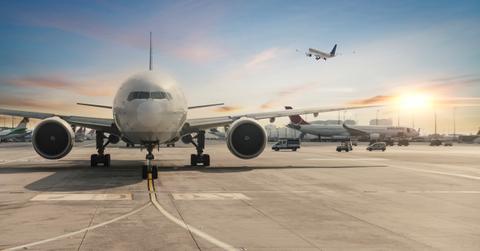What Is a Carbon Tax and Should I Pay It When I Fly?
The Carbon Offset Fee — also known as Carbon Tax — is like a monetary acknowledgement of the carbon emissions that will happen as a result of the air travel, but should you be paying for one?
Updated Oct. 8 2019, 1:34 p.m. ET

The Carbon Offset Fee is an optional donation that travelers can make toward an airline. Why would a person voluntarily pay extra money to an airline while flying? The Carbon Offset Fee — also known as Carbon Tax — is like a monetary acknowledgement of the carbon emissions that will happen as a result of the air travel.
The money paid for a Carbon Offset fee goes toward reductions that are made in the emission of greenhouse gases in order to offset other emissions. Essentially, the Carbon Offset Fee is a recognition of, “I know it’s bad for the environment to travel by airplane, but I’ll pay this fee so that the airline can put the money toward righting the environmental wrong.” Make sense?
A Carbon Offset Fee is a compensation of sorts. Paying the optional fee funds carbon emission reductions such as planting trees, researching more sustainable methods of travel, and fighting alternative ways to light planes. And so much more.

Should you pay a Carbon Offset Fee if you fly? It’s a complicated question that rests on you and your socioeconomic status. If you can afford to pay extra when flying, the environmental impact of paying the Carbon Offset Fee is huge for our planet. If it’s not in your budget, that’s understandable, too. You can always do other personal projects such as volunteering at a beach clean-up or plant trees near your own home or parks.
And yet, only 1 percent of Qantas and Virgin fliers paid the fee, says a 2008 study. Percentages at other airlines may be higher but are still relatively abysmal. Only 12 percent of Jetstar passengers paid the optional tax. Many airlines, like United and Delta, offer carbon calculator tools to fliers. A carbon calculator lets you calculate your hypothetical carbon footprint should you board certain flights. Then, United and Delta give you the option to donate to one of Conservation International’s Carbon Reduction projects.
So what’s the best thing to do when it comes to flying? The organization Carbon Offset Research & Education (CORE) says buying Carbon Offsets or paying Carbon Taxes should only be done as a last resort. Instead, they recommend reducing your own environmental impact.